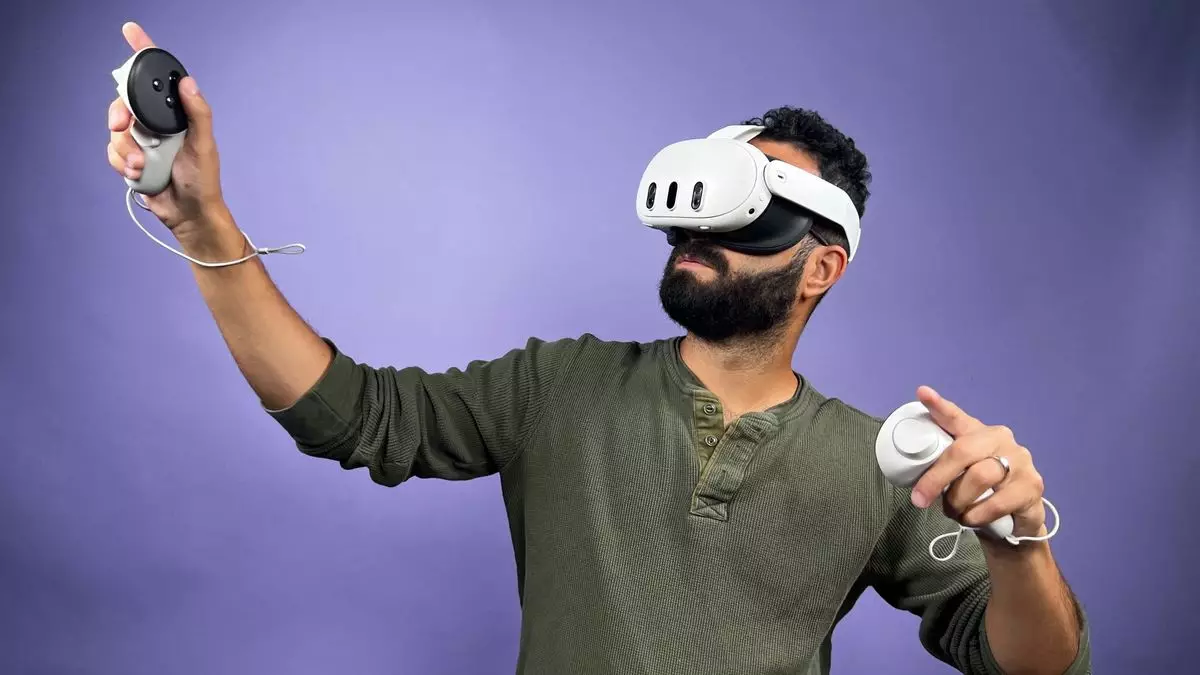In recent years, virtual reality (VR) has burgeoned as a transformative fitness tool, with users integrating immersive workouts into their daily routines. The Meta Quest 3 has emerged as a frontrunner in this domain, appealing to fitness enthusiasts keen on engaging with their routines in a more interactive manner. However, as the popularity of VR exercise programs such as Supernatural and Les Mills CR Bodycombat peaks, so too does the scrutiny regarding the technology’s durability under physical strain. Increasing reports of device malfunctions linked to excessive sweat point to an urgent need for both caution and adaptation among users.
A growing number of Meta Quest 3 users have taken to forums and social media platforms like Reddit to voice their grievances, particularly centered around the sweat-induced damage to their headsets. Anecdotes abound of individuals pushing their limits during intense workouts, only to find their headset malfunctioning mid-session due to perspiration pooling in critical electronic components. One striking account detailed a user whose headset flickered to life for a moment before succumbing completely after a vigorous session. Such reports paint a worrying picture for fitness-focused consumers, emphasizing the need for better design features to accommodate high-intensity usage.
While some users have adapted to these challenges, it is evident that there remains a significant portion of the user base facing detrimental hardware issues stemming from their vigorous VR activities. It’s unclear how prevalent these cases are, yet the anecdotal evidence calls attention to an issue that could affect potential customers’ perception of the product.
The technical aspects behind these reported failures warrant investigation. As users sweat during workouts, it is conceivable that moisture seeps through the fabric covering the headset, reaching sensitive internal components. This raises questions about the engineering behind the Meta Quest 3 and whether the headset is adequately equipped to handle the rigors of a fitness-oriented lifestyle. Instances of individuals reporting multiple replacements of their devices within a short timeframe only exacerbate the unease surrounding product reliability.
Despite these concerns, it would be hasty to attribute all headset issues solely to sweat. With a product as widely adopted as the Meta Quest 3, manufacturing defects or isolated incidents may also play a role in the complaints. Continued engagement with the user community will be crucial for Meta as they seek to refine their products and address these urgent concerns.
For those who are undeterred by these tales of woe and plan to incorporate intense workouts into their VR regimen, taking preventative measures can mitigate potential risks. The importance of investing in accessories designed to handle perspiration cannot be overstated. For instance, specialized sweat-catching faceplates and enhanced straps can significantly reduce the contact between moisture and the headset’s electronics.
Additionally, community recommendations have surfaced, suggesting users employ diligent cleaning practices after each workout, such as wiping down the headset and avoiding placing it face down. Although these measures introduce an additional layer of effort, they could protect the headset from damage and prolong its longevity.
As VR fitness continues to evolve, it is paramount for manufacturers like Meta to recognize and address user concerns proactively. Future model iterations should consider enhanced design features that enhance durability against sweat and other potential hazards. Meanwhile, users keen on maintaining their equipment’s integrity must remain vigilant and informed regarding proper use and care. The intersection of fitness and technology holds considerable promise, but it is vital that both consumers and manufacturers navigate this landscape with awareness and adaptability.
Ultimately, while the integration of fitness practices into VR can be immensely rewarding, it is critical to reconcile the technological limitations with users’ needs. The Meta Quest 3 has potential, but as reports indicate, a balance is necessary to ensure both health and equipment remain intact.

